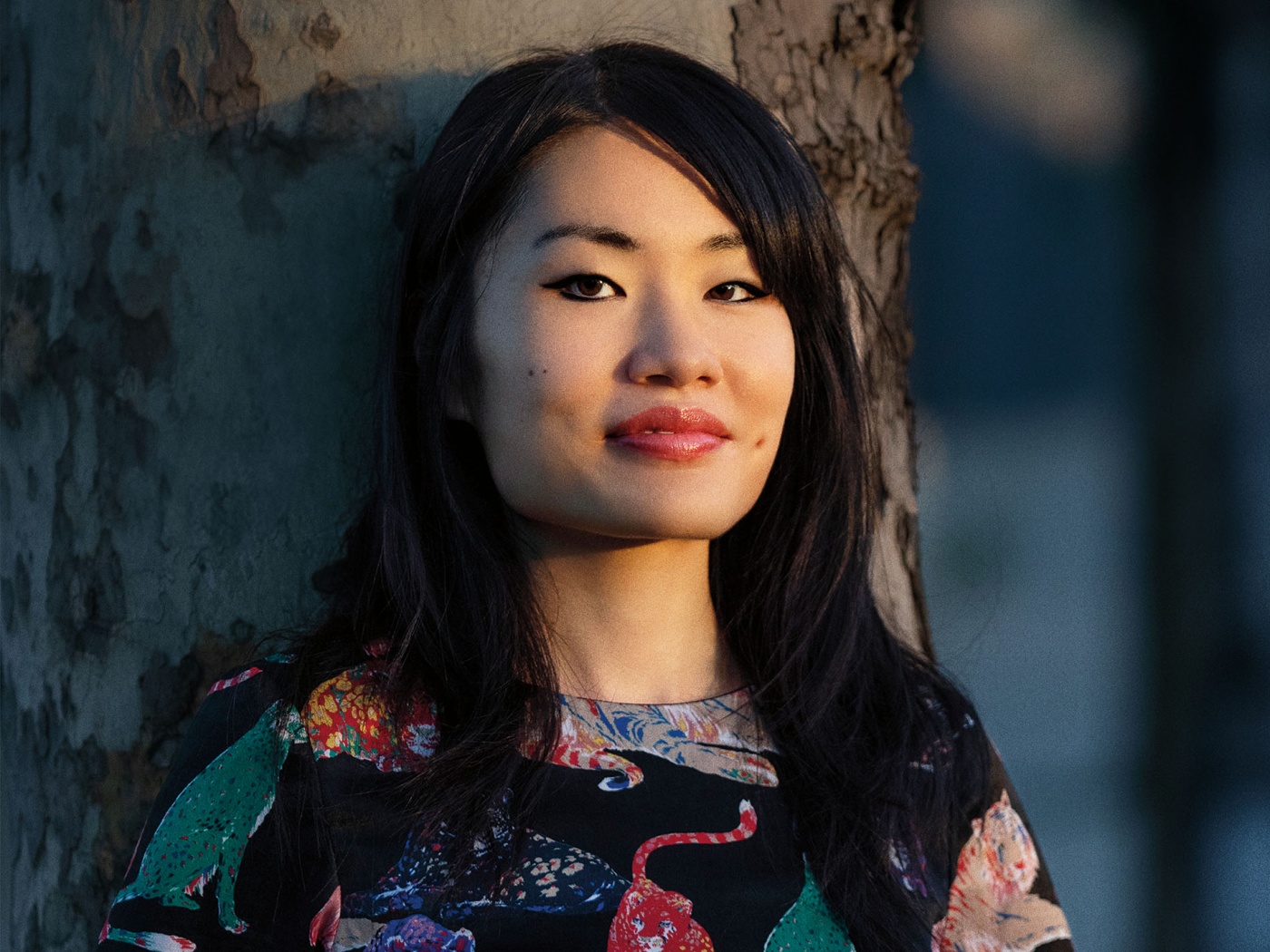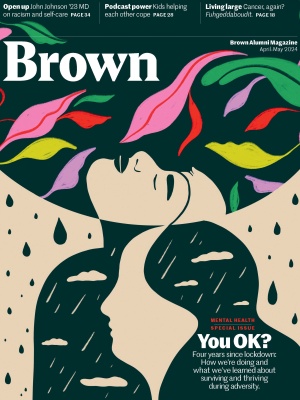Are Mushrooms the New Prozac?
Research with psilocybin shows positive results for depression
Since 1970, psychedelics like LSD have been banned by the U.S. government, which claimed that such drugs have “no currently accepted medical use.” But that view appears increasingly outdated, and research by psychiatrist Xiaojue Hu ’06, ’11 MD and many others indicates that psilocybin—the hallucinogen in magic mushrooms—has valuable therapeutic benefits.

Hu served as a co-investigator in a clinical trial at the New York University Langone Center for Psychedelic Medicine, administering a single dose of synthetic psilocybin or placebo to people suffering from clinical depression. Patients were accompanied by psychological support during and after the psychedelic experience, and their depression improved significantly and remained that way for weeks, compared to those who received a placebo drug, according to the results published in an August 2023 edition of the Journal of the American Medical Association.
“One metaphor that’s used, it’s as if your brain was a snow globe and being on psychedelics is like shaking up a snow globe,” said Hu, an assistant clinical professor of psychiatry at NYU’s School of Medicine. “Whatever rigid beliefs or thoughts and patterns that someone may hold, such as someone with depression, it can be a little bit more flexible to change in that immediate period afterwards.”
This happens in part because psychedelics can trigger neuroplasticity, making the brain more flexible to positive rewiring, especially when “tripping” occurs with guidance in safe and comfortable settings, explains Hu. In the clinical trial, she provided psychological support when needed to patients but generally let those tripping “have their own experience,” later integrated and discussed in follow-up therapy sessions.
Hu, whose parents moved from Shanghai to Michigan when she was six years old, says adapting to the U.S. as a child of immigrants built “empathy and respect for very different perspectives.”
She also works in private psychiatric practice, sometimes treating patients with the legal hallucinogenic ketamine for anxiety, trauma, and depression. She believes that as the evidence from a growing body of research adds up, psychedelics will move towards more widespread legalization.
The stigma around psychedelics appears to be fading and, in June, the Federal Drug Administration issued guidelines for conducting clinical trials with psychedelics. Since 2020, Oregon has allowed for the use of psilocybin in guided therapy and Colorado decriminalized the substance, along with some cities such as Minneapolis.
Intrigued by the possibilities to expand treatment options for patients, Hu is part of an NYU team conducting a study on the use of psilocybin in therapy for advanced cancer patients to aid them in reconciling with “existential distress.”
Drawn to multiple disciplines as a comparative literature and pre-med undergraduate student, Hu sees psychedelics as a part of her holistic approach to therapy, combining neurochemistry, psychotherapy, and even spirituality, reshaping patients’ self-narratives.
“I really like stories. So I feel like in psychiatry, you actually get paid to listen to people’s stories all the time,” Hu says. “Then help them find better stories to tell themselves and the world.”





